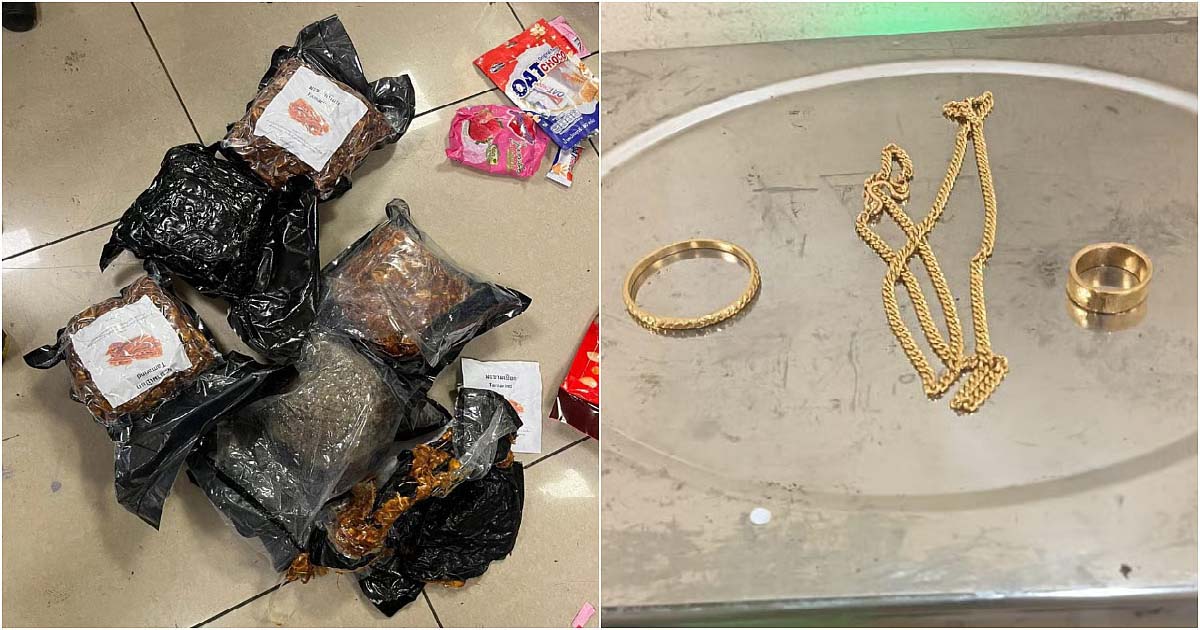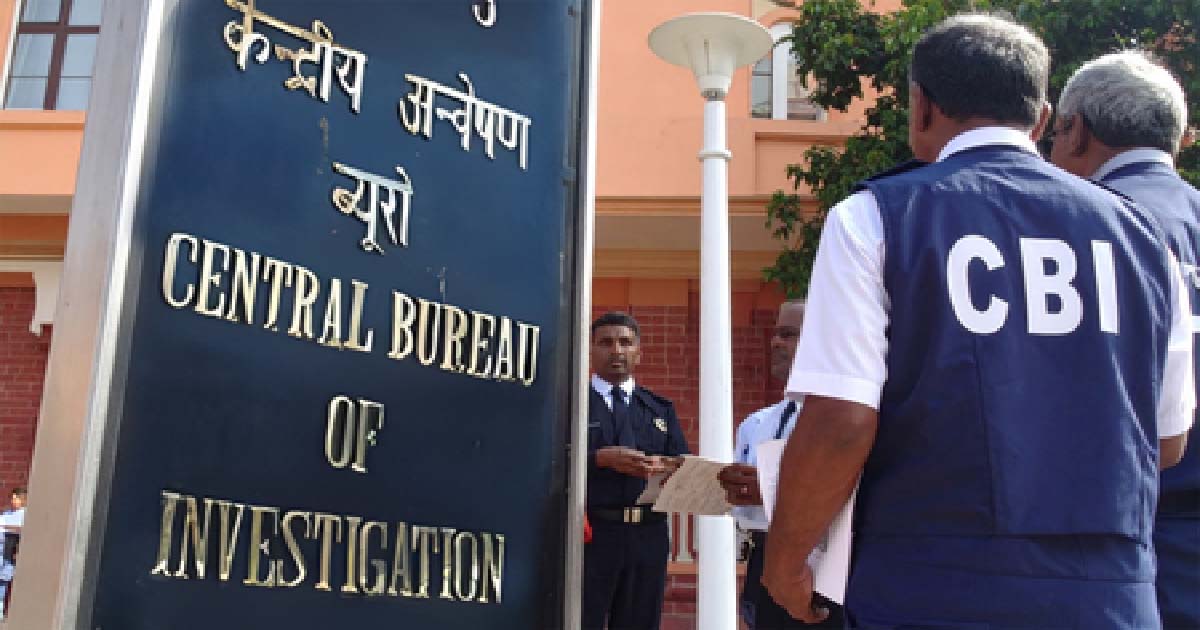Crime
Beed Sarpanch murder case: NCP Minister Dhananjay Munde resigns

Mumbai, March 4: Amid raging controversy over the brutal killing of Massajog Sarpanch Santosh Deshmukh from Beed district, Minister of Food and Civil Supplies and NCP leader Dhananjay Munde on Tuesday resigned following a directive from Chief Minister Devendra Fadnavis.
Munde’s personal assistant visited CM Fadnavis’ ‘Sagar’ bungalow and submitted the Minister’s resignation letter to the Chief Minister’s Office.
Munde, who is diagnosed with Bell’s Palsy (partial paralysis), did not come in person as he preferred to stay at the official bungalow.
The opposition staged a protest at the entrance of Vidhan Bhavan, demanding the resignation of Munde and Agriculture Minister Manikrao Kokate, who was convicted by the Nashik court in a fake documents case.
Although Munde was reluctant to tender his resignation, it was CM Fadnavis who prevailed over him and asked him to step down, especially when the chorus was increasing from ruling and opposition parties and various social organisations.
Munde’s resignation comes a day after the photos and videos of Deshmukh’s murder went viral on TV channels.
He was asked to resign days after the 1800-page charge sheet filed by the state CID had named the Minister’s close associate Walmik Karad as the mastermind in the broad daylight murder of Santosh Deshmukh in December last year. The charge sheet has mentioned all eight accused, including Karad, though one accused Krishna Andhale is still missing.
Karad has already been booked under the Maharashtra Control of Organised Crime Act in connection with the extortion case, which was linked to the murder of Santosh Deshmukh. Munde was under tremendous pressure to submit his resignation, but he and the NCP took the stand that he would resign after the findings of the investigations by CID, special investigation team and judicial committee.
NCP president and Dy CM Ajit Pawar reiterated that the party has condemned the brutal killing of Massajog sarpanch, adding that it will take a call on Munde’s resignation after probe and the court order. Ajit Pawar had reminded Munde that he had himself submitted his resignation on moral grounds in the past after he was targeted over the irrigation scam. Thereafter, the Chief Minister left the decision of Munde’s resignation to Ajit Pawar.
The charge sheet was filed last week, along with matching voice samples of Karad and the company employees. CCTV footage showed the connection of the accused in the murder case with the extortion crime. The police sources said that after a CID investigation with the help of about 180 witnesses, Walmik was named as the mastermind of the crime. Evidence was been presented against eight accused, including Karad. The ‘digital’ evidence in this investigation, conducted under the guidance of Investigation Officer Basavaraj Teli, was examined and prepared by the forensic laboratory.
In the extortion case, Walmik has been accused of being the mastermind behind the crime. It has been mentioned in the charge sheet that he said, “End him as soon as he comes; otherwise, he will be forced to beg.”
Among the accused, Sudarshan Ghule and his accomplices were involved in organized crime. The charge sheet states that he and his accomplices committed 11 crimes in 10 years in Kej, Ambajogai in Beed district and Dharur and Kalamb in Dharashiv district.
According to the charge sheet, on October 8, 2024, Avaada Energy’s Land Acquisition Officer Shivaji Thopte went to meet Walmik Karad at his office in Parli at his request. Vishnu Chate was present at that time. At this time, Karad threatened, ‘If you want to keep the company running, pay Rs 2 crore or else stop all the work of Avada Company in Beed district.’
Further, on November 29, for the same demand, Sudarshan Ghule threatened, ‘Fulfill Walmik Anna’s demand and meet him. Do not start the work till then.’ Avadda Energy’s land acquisition officer Shivaji Thopte was abused and beaten up and threatened to pay Rs 2 crore or else the company would be closed.
Thereafter the company employees called and informed Sarpanch Santosh Deshmukh about the incident. Following this, Sarpanch Santosh Deshmukh went to the site and requested Sudarshan Ghule and his associates, ‘Don’t close the company. Let people get employment.’
At that time, since Sudarshan Ghule was at the forefront in demanding extortion, the sarpanch threatened Santosh Deshmukh, saying that he would not leave him alive.
On the afternoon of November 29, 2024, Walmik Karad, Vishnu Chate, Sudarshan Ghule, Prateek Ghule, Sudhir Sangle and Krishna Andhale held a meeting at Vishnu Chate’s office in Kej and demanded that Avaada Energy should pay Rs 2 crore. They hatched a conspiracy on the recovery of ransom and also how to deal with Sarpanch Santosh Deshmukh.
According to the charge sheet, Santosh Deshmukh was abducted and murdered at the Dongaon toll plaza on December 9 last year. Since the charge sheet was filed in the court within 80 days, it will now be difficult for the accused to get bail, said the police sources. The government has recently appointed senior advocate Ujjwal Nikam as special prosecutor in the case.
Crime
Mumbai Airport Customs Seize ₹43 Crore Drugs, ₹1.51 Cr Gold & ₹87 Lakh Diamonds In 15 Smuggling Cases Over Past 8 Days

Mumbai, Dec 10: The Mumbai Airport Customs in 15 cases over the past eight days have seized smuggled drugs worth ₹43 crore, gold worth ₹1.51 crore and diamonds valued at ₹87 lakh.
According to the Customs, during December 03 till December 10 they detected ten cases of smuggling of hydroponic weed.
“Based on spot profiling, a total of 37.26 kg of suspected hydroponic weed valued at approximately ₹37.26 crore in the illicit market were recovered under seven cases from nine passengers who had arrived from Bangkok via various flights and were arrested under the provisions of the Narcotic Drugs and Psychotropic Substances (NDPS) Act,” said a Customs officer.
“The modus operandi used by the accused in these cases were that the passengers attempted to smuggle hydroponic weed by concealing the contraband inside the trolley bags and using the baggage tags of another flight to avoid detection by Customs Officers. In some cases, the passengers attempted to smuggle hydroponic weed by concealing the contraband inside the lumps of tamarind to avoid detection,” the officer said.
In three other cases, based on specific intelligence, a total of 6 kg of suspected hydroponic weed, valued at approximately ₹6 crore in the illicit market were recovered from three passengers who had arrived from Bangkok via various flights and were arrested under the provisions of the NDPS Act.
“Other than the NDPS cases, four gold smuggling cases were booked in which a total of 1,256 grams of gold valued at ₹1.51 crore were recovered and seized from four passengers. In one case, diamonds valued at ₹87.75 lakh were recovered and seized from one passenger,” the officer said.
Crime
CBI court sentences BBAU office assistant to four years’ imprisonment in bribery case

Lucknow, Dec 10: A CBI Court in Lucknow has convicted and sentenced Vijay Kumar Dwivedi, a former Office Assistant at the University Institute of Engineering & Technology (UIET) under Babasaheb Bhim Rao Ambedkar University (BBAU), to four years’ rigorous imprisonment in a bribery case.
The court has also imposed a fine of Rs 30,000 on him, the Central Bureau of Investigation (CBI) said in an official statement issued on Wednesday.
The conviction was pronounced on December 9, the statement said.
According to the CBI, the case originated from a complaint filed by a contractual assistant professor of UIET, who alleged that Dwivedi had demanded an undue advantage of Rs 50,000 in exchange for facilitating the extension of the contractual appointment of the assistant professor.
The accused claimed that the extension would be processed through the Director of UIET and demanded a bribe to ensure the renewal.
Acting on the complaint, the CBI registered the case on June 2, 2017, and laid a trap. During the trap, Dwivedi was caught red-handed while demanding and accepting the bribe amount from the complainant assistant professor. The agency subsequently arrested him.
Following the completion of the investigation, the CBI filed a charge sheet against Dwivedi on August 1, 2017. The prosecution presented evidence, including witness testimonies, trap proceedings, and recovered money, to establish the guilt of the accused.
After a detailed trial, the CBI Court found Dwivedi guilty of demanding and accepting illegal gratification and sentenced him to four years’ imprisonment.
The court also ordered him to pay a fine of Rs 30,000. The judgment, the agency said, reinforces the CBI’s commitment to combating corruption in public institutions.
The CBI actively investigates bribery cases, leading to convictions of public servants and private individuals for demanding or accepting bribes, with punishments including imprisonment and hefty fines.
Crime
Palghar Crime: 2 Arrested For Attempted Murder In Daylight Robbery At Vasai Jewellery Shop

Palghar: In a swift and coordinated operation, the Crime Branch Unit 4 of the Mira-Bhayandar, Vasai-Virar Police Commissionerate arrested two accused who brutally attacked a jeweller during an attempted daylight robbery in Vasai East.
The incident occurred on December 9, 2025, at around 11:57 a.m. at Ambika Jewellers, located near Shalimar Hotel in Waliv, Vasai East. According to the police, the complainant’s brother, Kalusingh Kharvat, was attending the shop when an unidentified man and woman entered the store along with a young child. They asked to see a gold ring and also requested water for the child.
When Kalusingh stepped into the inner room to bring water, the male accused followed him inside and allegedly attacked him with a knife. The victim sustained multiple stab wounds to his abdomen, hands, chin, right cheek, and forearm. The attacker reportedly attempted to kill him before fleeing the scene. A case was registered at Waliv Police Station under BNS Section 109 and 3(5) for attempted murder and related offences.
Acting on instructions from senior officers, Crime Branch Unit 4 immediately visited the crime scene, analysed CCTV footage, and developed actionable intelligence. Based on technical surveillance and confidential information, the team tracked down and detained the suspects from the Nashik Road area.
The arrested individuals have been identified as Sohel Sharafat Khan, 23, and Firdos Bano Sohel Khan, both residents of Tehroli, District Jhansi, Uttar Pradesh. The duo were found to be actively involved in the crime and were handed over to Waliv Police Station for further investigation.
Meanwhile, the victim is undergoing treatment and is reported to be in stable condition.
-

 Crime3 years ago
Crime3 years agoClass 10 student jumps to death in Jaipur
-

 Maharashtra1 year ago
Maharashtra1 year agoMumbai Local Train Update: Central Railway’s New Timetable Comes Into Effect; Check Full List Of Revised Timings & Stations
-

 Maharashtra1 year ago
Maharashtra1 year agoMumbai To Go Toll-Free Tonight! Maharashtra Govt Announces Complete Toll Waiver For Light Motor Vehicles At All 5 Entry Points Of City
-

 Maharashtra1 year ago
Maharashtra1 year agoFalse photo of Imtiaz Jaleel’s rally, exposing the fooling conspiracy
-

 National News1 year ago
National News1 year agoMinistry of Railways rolls out Special Drive 4.0 with focus on digitisation, cleanliness, inclusiveness and grievance redressal
-

 Maharashtra1 year ago
Maharashtra1 year agoMaharashtra Elections 2024: Mumbai Metro & BEST Services Extended Till Midnight On Voting Day
-

 National News1 year ago
National News1 year agoJ&K: 4 Jawans Killed, 28 Injured After Bus Carrying BSF Personnel For Poll Duty Falls Into Gorge In Budgam; Terrifying Visuals Surface
-

 Crime1 year ago
Crime1 year agoBaba Siddique Murder: Mumbai Police Unable To Get Lawrence Bishnoi Custody Due To Home Ministry Order, Says Report












